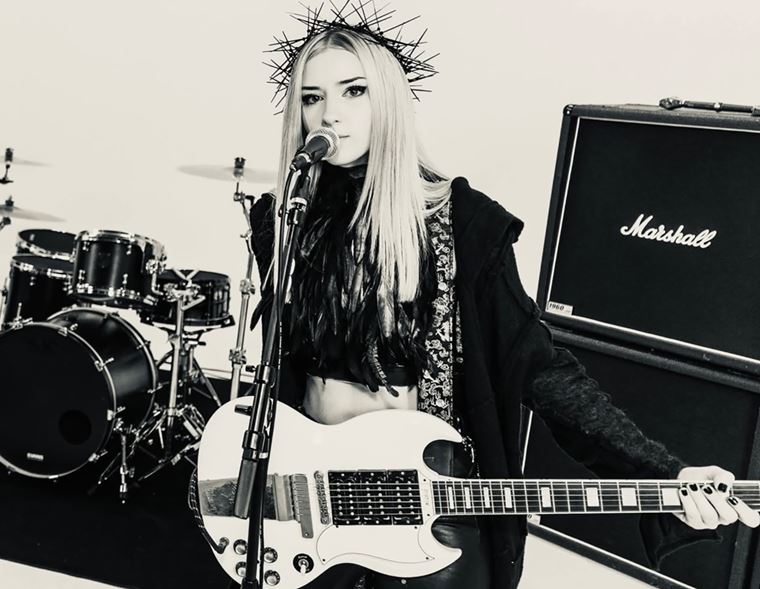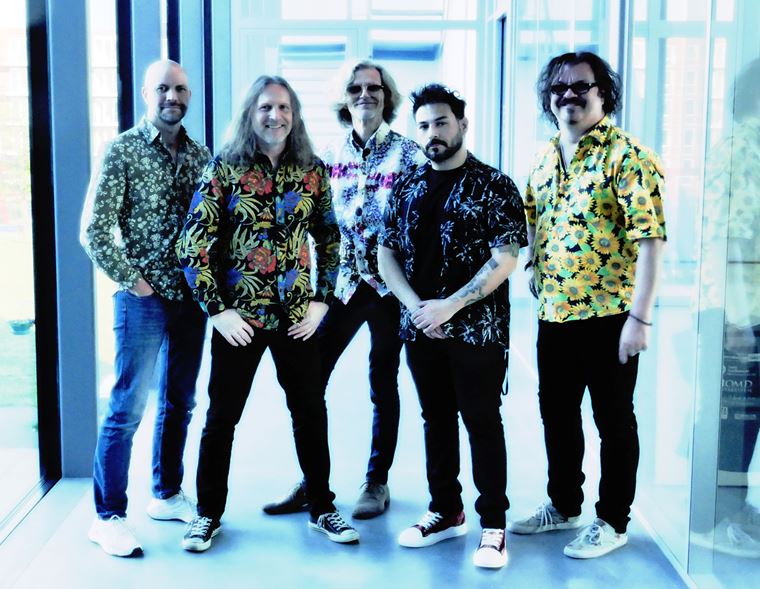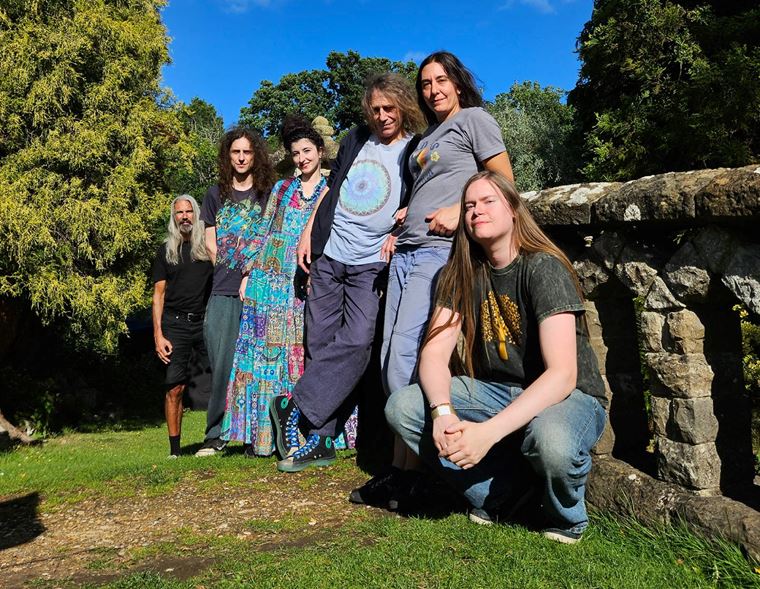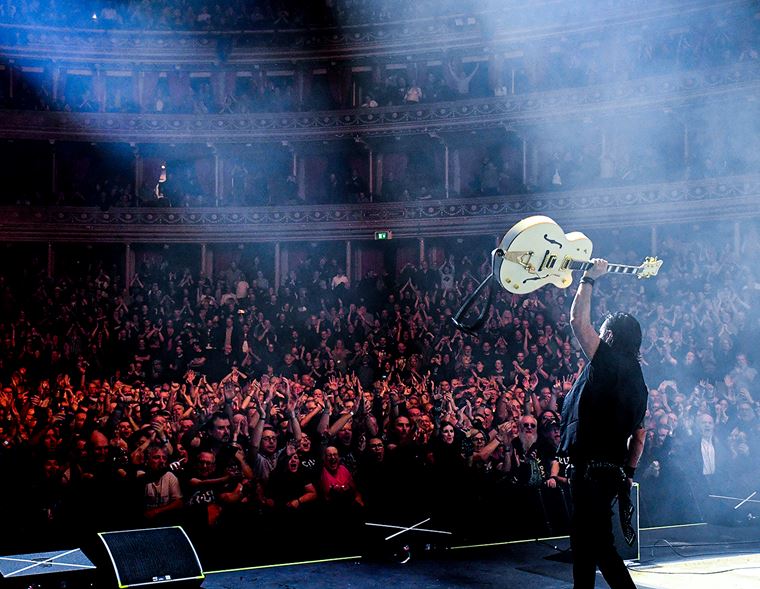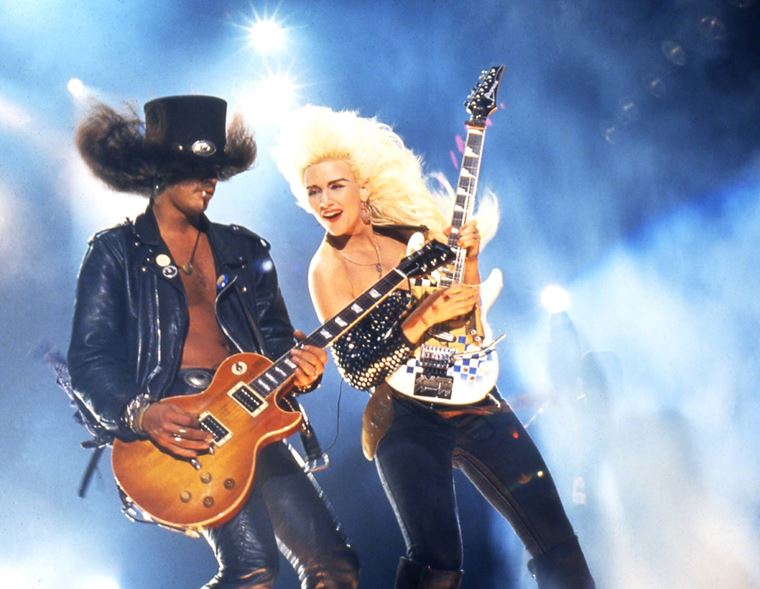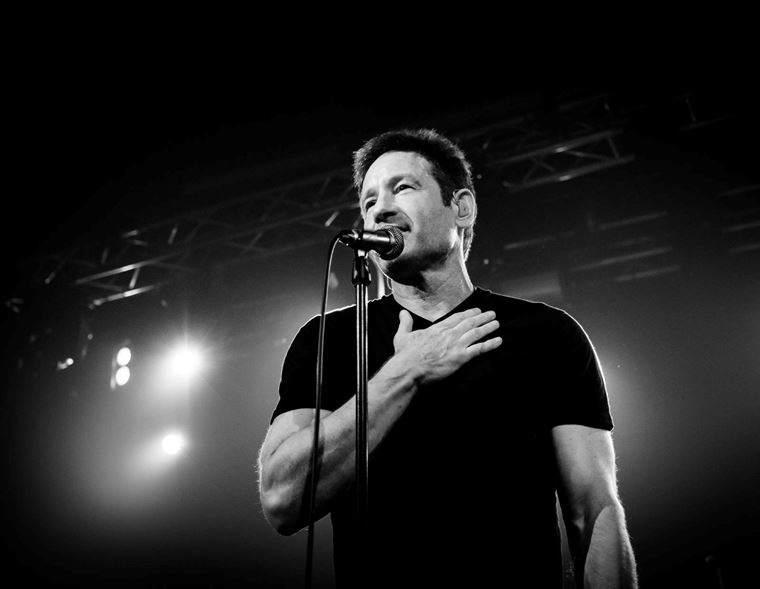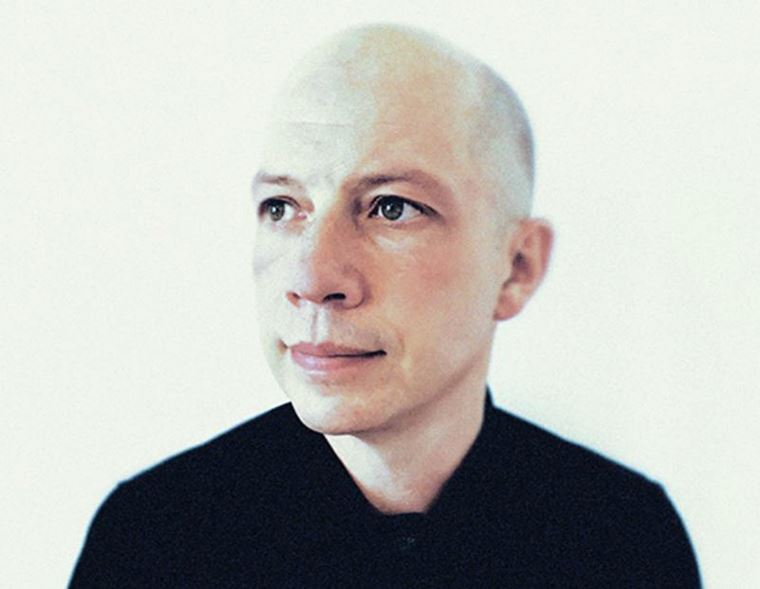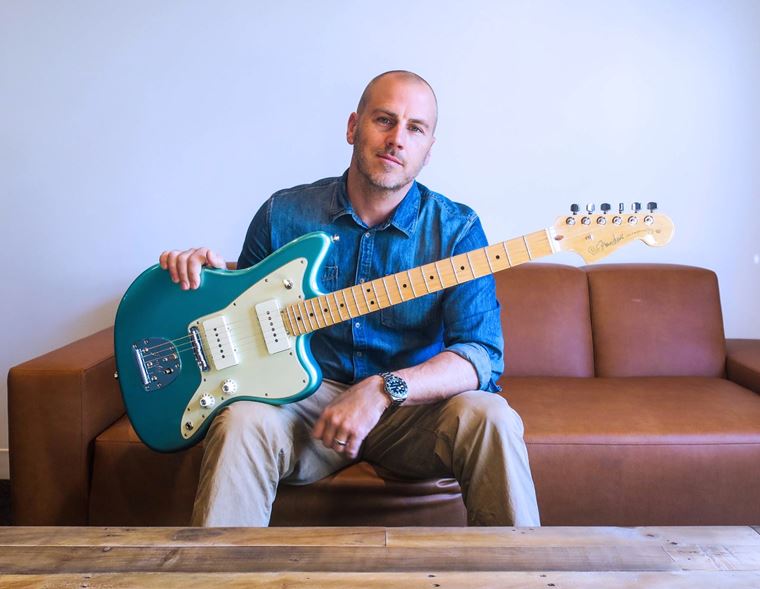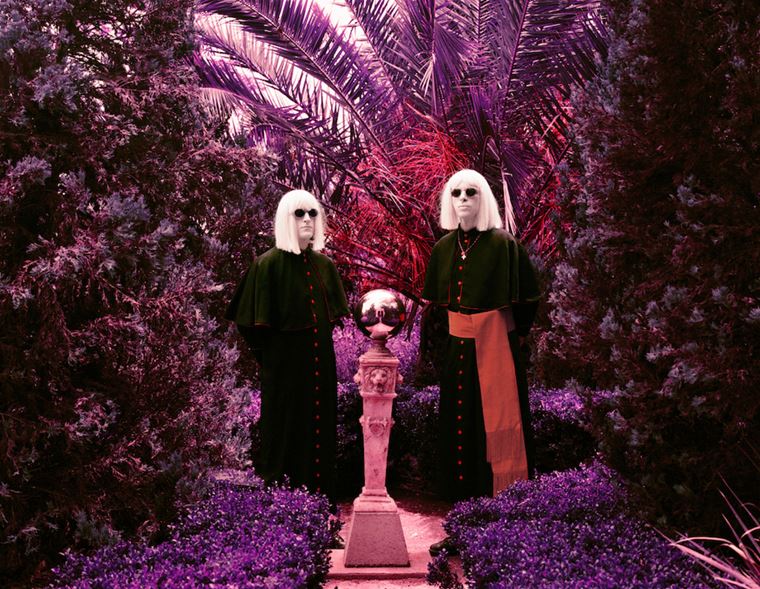YNGWIE MALMSTEEN, from his Ferrari, on Miami Beach
Published on 28 March 2025
Yngwie Malmsteen does not disappoint.
The famed Swedish neoclassical shredder and composer is well known for his larger-than-life persona, and I wondered how that might transfer on a Zoom call?
Our occasion to speak was to discuss his upcoming release Tokyo Live (out today, March 28th), a fast and furious live record gleaned from his recent touring cycle. It featured moments from all era of his career, all played with a huge amount of attitude and a large level of improvisation. It’s one hell of a journey, to say the least.
As 2025 marks 40 years of Malmsteen’s career, this record has come along at a good time. It’s a chance for people like me to take stock of his career, his achievements and his contributions to the world of guitar playing and composing.
I say composing, because I feel like many people miss that side of his craft, distracted (understandably) by his fret-melting guitar heroics and yes, the odd anecdote about his wilder behaviour over the years.
I wondered how Yngwie would show up to our online appointment: after all, we’d never actually spoken before. In over 200 interviews for guitarguitar (find the rest here at the guitarguitar Interviews page), I’ve generally found everyone I’ve encountered to be friendly and pleasant, so I naturally hoped for the same here.
I needn’t have been concerned. Yngwie was in full-on ‘Yngwie mode’, but in a way that was polite, affable, friendly and hugely entertaining. If you’re a fan of his, I can report that he was exactly how you’d hope him to be, in all the right ways! There was a lot of yelling and a lot of laughter, but he’s such a charming and charismatic man to talk to, it’s never less than entertaining. He’s also an exceptional musical mind, and that’s something I endeavoured to explore in the 40-something minutes we had together.
Yes, he was driving a Ferrari around Miami Beach, and yes that improves everything about the conversation. Of course it does! This is Yngwie Malmsteen, people!
I should say that, for maximum Yngwie effect, I’ve left the text fairly unedited. This means there’s the odd bit of swearing here and there, but if you’re a fan, you’ll understand the passion! Here’s the whole conversation…
Contents
No Sweep-picking, and Playing Tips from Yngwie
Yngwie’s Signature Fender Strat: The Story
Yngwie Malmsteen Interview
Guitarguitar: How are you, Yngwie?
Yngwie Malmsteen: I’m doing good, I’m doing a little ‘top down, foot down’. It’s 80 degrees here in Miami beach. I like to drive around in my convertibles on the beach, that’s what I do.
GG: That’s what it’s all about! So, we’re here to talk about your new record, Tokyo Live. It’s a beautiful, amazing album! Congratulations!
YM: Oh wow, thank you!
GG: Do you see it as being an overview of your entire career?
YM: Well, you can’t really encapsulate the whole thing like that but basically, it’s a funny story how that recording happened. I was doing an album called Parabellum and I toured that album something fierce. I mean, four or five American tours, South America, two European tours. All of a sudden, someone mentioned, ‘Hey! It’s been 40 years since your first solo album this year!’ Aww shit yeah! So we changed the name of the tour to the 40th Anniversary tour and this kept on going. Once we got to Japan, the promoters said they wanted to film the show. I said okay, as long as I get the footage and audio, then we decide if I want to use it.
So I got it and it was amazing, it was really good. It was originally supposed to be released in Japan only, but I decided to put this out around the world. It wasn’t necessarily like ‘I’m gonna have to record in Japan’, because honestly, the audiences have been amazing all over the world, everywhere!
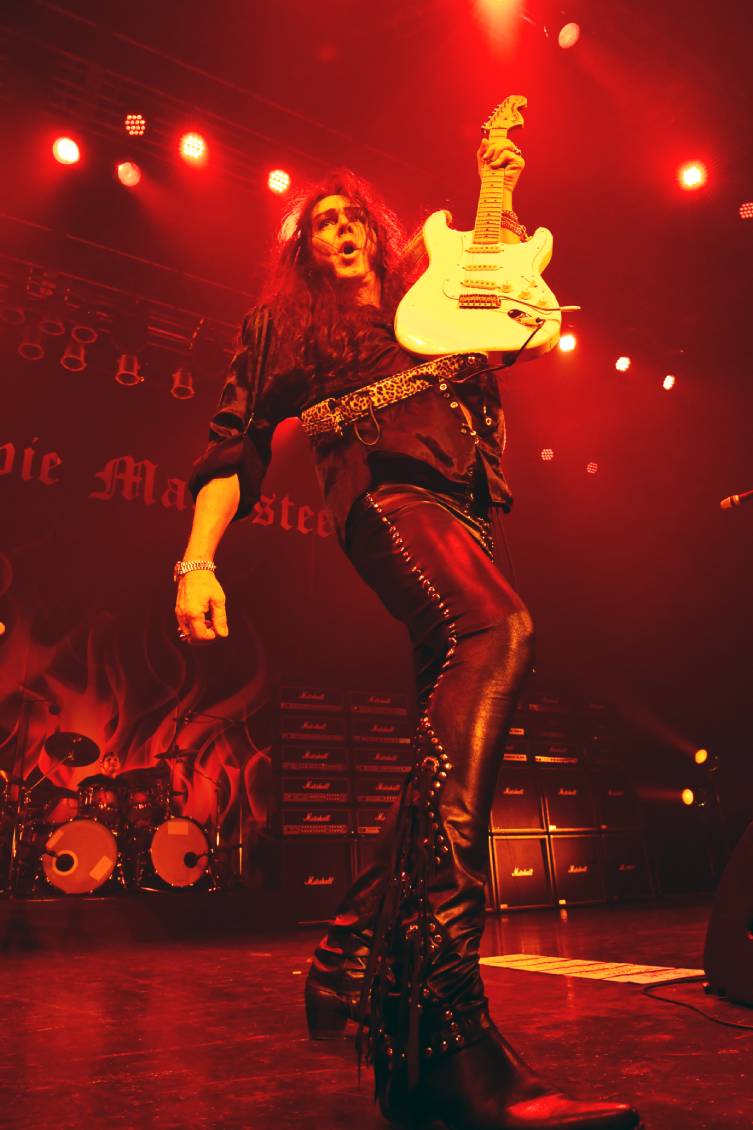
(Photo: Hikari Yuba)
Setlists & Improvisation
GG: That’s amazing! Yngwie, you’ve got 22 studio albums: how do you go about choosing which songs to put on a setlist?
YM: Well, that’s a problem that happens every day! So, I don’t like to do the same setlist every night, so after soundcheck - about an hour before the show or so - I get my guys to come into my dressing room and decide on the setlist. Then we get it printed and put onto the stage. It’s not gonna be the same as the night before, so we set it up, I hit the stage, and then I just play a different setlist anyway! I play different songs from the list so everybody just has to follow on.
I never, ever do the same one, The only one I put on deliberately for this recording was Hiroshima Mon Amour, because I wanted to have that in the set for the Japanese. I switch around, and every song I play, I would play differently every night, too. Different intros, and the solos are always different. After all this time, the way to challenge yourself is to not just rely on what you already know, you know?
GG: Yeah, and I’m guessing also that there’s got to be a sort of flow to the set as well, right? Do you just feel out the sequence, and get a sense for which songs will work?
YM: Yeah, I do actually. It’s the same as sequencing the record too, when you think about tempos and keys, and all this stuff. I mean, it’s really kind of a hard thing: sometimes I have to wing it, because if you think too much about it, it ends up being a quagmire of crap! (laughs) I don’t like to think too much about things, I like to just do them.
GG: Yeah, that actually leads me on nicely to my next question. With a live album, is the main intention with the recording to capture energy?
YG: Well to me, it’s a funny thing because when I was a little kid, it wasn’t like I really knew about studio recording procedures and shit like that. We’re talking about 7, 8, 9 years old. There was no information about anything, so when I heard a live recording, I always tended to like that live version of a song better than the studio one.
Deep Purple’s Made in Japan is a good example. I actually heard that before I heard Machine Head, and I liked it better than Machine Head! Most of the records that I had, I preferred the live albums so to me, they’ve always been a great thing. But, in essence, what they are is a snapshot, really. The night before will not be the same as the night after. The only thing I can see as a continuous thing about me is that I ALWAYS give 200%. I never, never phone it in.
"Improvisation is the genesis of composition"
GG: From watching the video footage, that’s clear! That’s one of the things that I’ve always admired about your music: the fire and the passion that’s in your playing. I wonder, is the excitement for you the same today as it was 40 years ago?
YM: It is! (laughs) That’s the weirdest thing! But it’s funny you should say that, because when I look back at 40 years, there’s not a lot of people that can say that! It’s pretty short-lived, most of these things, but I think one of the keys for me - to quote Niccolò Paganini - ‘one must feel stronger to make others feel stronger’, you know? I feel real passionate, I’m not faking this shit you know! And the reason I feel that is that I don’t allow myself to get into a comfort zone where it’s all just preset; we know this, that, whatever. It is always going to be a bit of a battlefield out there, you know what I mean? To me, that’s excitement, and that’s how the excitement stays there. Otherwise, you’re just being a fuckin’ jukebox! I don’t like to be that.
GG: Yeah, and that’s why you add in improvisational parts every night, so that it’s fresh for you.
YM: Exactly! But having said that, there’s two ends to the sword. It’s also much more demanding and much more challenging and much more risky to improvise everything because it might suck! (laughs) I just listened to some of the parts on the record - I haven’t heard that whole thing for a while - but I really went out there on stuff like Brothers. I completely improvised everything.
Practice & Going Into Battle
GG: That’s incredible! You’re not talking about doing a 12-bar blues, either: this is some serious playing! I wonder: even though everyone knows you’re one of the fastest and greatest technical players, do you still have to put in the hours of practice to maintain that?
YM: It’s a funny thing, that, because I never really in a true sense ‘practised’ anything! I do play, I have my guitar by the TV set, I like to have a guitar where I am, so I do play. It’s more of a psychological thing, because I just won’t allow myself to slack off, my personality doesn’t allow it, haha! You know, it’s not like: ahh well, I didn’t have time for this, that, or whatever. I don’t think like that. What is time? When it’s showtime, you’d fucking better deliver, man! That’s the soldier in me. You get to the battlefield, you better get those hand grenades ready! Get that M-16 ready and go, man! You can’t be going ‘Oh, I’ll wait till later’. No, it’s now or fucking never! You gotta be. I’m dead serious about what I’m doing, but it stays fun because it's never the same.
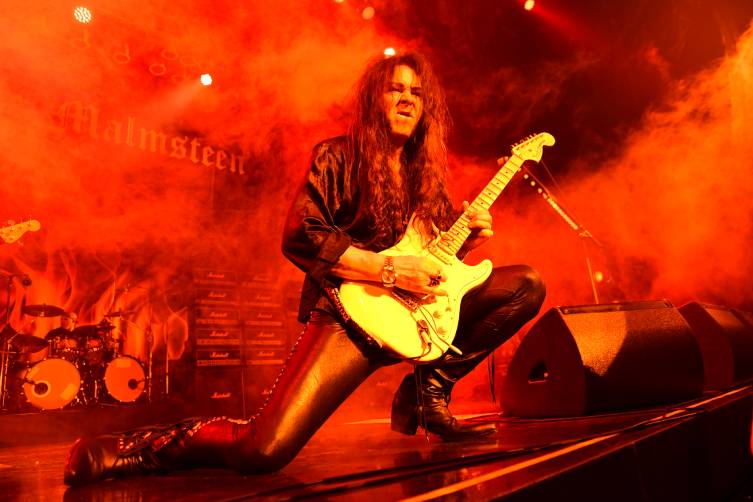
(Photo: Hikari Yuba)
Automatically too, because when you tour, every venue is different as well. Every venue sounds different, and has a different vibe, and a different audience, a different stage. And I didn’t even use my own stacks for this, they were just there, but that’s okay: throw me a Marshall and I’ll make it work! It’s a lot of things like that: a lot of variables, all the time. To me, it’s good in a way. I know other guys, and I’m not knocking them, but they put their amp line exactly the same distance from themselves, and they have the same sort of effects rack, so their sounds will be pretty much unchanged no matter where they are, right? That’s great - and in fact I sometimes wish I did that too, ha! - but, that’s part of the challenge, isn’t it? You do the soundcheck, and once the crowd is in, it’s like 3000 people in there, it’s gonna sound completely different again! It’s a huge difference! I sometimes joke that when people come in, they’re gonna have to wear reflective clothing like ski hats and stuff, so they don’t deaden my sound! (laughs) Clothes and hair, it will all deaden the sound.
GG: I guess that’s true, yeah.
YM: Oh, I analysed all this stuff!
Tone on Tour
GG: Haha! I don’t doubt that for a second, Yngwie! You obviously have a fantastic guitar sound. In terms of live versus studio, is it a matter of using your Strat and Marshalls, then using your ears to tweak the tone until you get your sound?
YM: Yeah, there’s really not much tweaking on tour. I don’t use monitors - I don’t like monitors - my monitors are Marshall stacks, you know? I don’t use any effects, so the sound of the hall is really important to me. If it’s a dead room, I don’t like it. I live with it, but I don’t like it. Not to mention outdoor shows: they’re terrible! (laughs)
GG: Of course!
YM: Oh my god, the worst sound ever! In the studio, everything’s set up: I push one button and then I go. I don’t wanna deal with any setting up, so everything’s done. I was in there this morning before my first interview. I plugged in and I actually wrote a song before I started my first interview.
GG: No way!
YM: Yeah! Well, not a song, necessarily, but a theme. Recorded and everything. That’s the beauty of having your own place, with everything set up, because otherwise the inspiration will go away. Now, live, it’s completely different, and that’s part of the challenge; part of the excitement. Obviously I love a theatre sound, because they were originally built for music anyway.
"Throw me a Marshall and I'll make it work! I don't use monitors: my monitors are Marshall stacks, you know?"
GG: Exactly, yeah.
YM: If it’s too dead, I don’t like it, but if it’s too live - like an arena, like Budokan - it’s so live that it doesn’t really come back at you!
GG: Yes, it causes the same problems.
YM: Exactly! You’re back to square one again. I’m a real old school guy, I like the sound of PA. In other words, a lot of people soundcheck and say they want to hear the stage only. I already know what the stage sounds like, I want to know what it sounds like when the guy has the whole house on, because everything is in the house and it comes back to you. There are all these variables. In fact, I played in Korea not very long ago and said, ‘Hey, I can’t hear the guitar coming back at me’, and it was a huge arena, like 6000, 7000 seater or something. It turns out, it was designed not to bounce back at all, so he ended up putting the guitar up too loud, you know? It’s really weird, how that is.
GG: It’s crazy, but what’s good is that to me, it sounds as if your performances are all about being in the moment.
YM: Oh yeah, it’s all about that!
GG: It’s maybe not so true of players who go through the same motions every night, so is it an important thing for you, to always be present?
YM: To be honest with you, the ultimate out-of-body experience is when you have such perfect sound, such a perfect vibe and such perfect inspiration that you don’t even play the guitar: you’re listening to the guitar. You’re listening! You’re not even the performer, you’re disconnected, you’re actually hearing what’s going on. Steve Vai actually told me it happened to him too. It is such an amazing feeling.
I mean, I don’t think about fingering and all that shit anyway, but I might be seeing like a white light in the rig - I hate white lights - so it could be all of these things that annoy me, right? But when everything is right, when everything is perfect, you hear the instrument and you are basically spectating it, not performing it. It’s a fucking amazing feeling, man. It happens now and then, when everything is just perfect.
GG: A special transcendence.
YM: It is! I mean, it is out there!
Composition
GG: That sounds incredible. Now Yngwie, obviously I know you as a world-famous guitarist, but you’re also a great composer and maybe people don’t talk about that so much. I’d like to talk about composition with you, if that’s okay?
YM: Absolutely! That’s one huge part of what I do.
GG: Interestingly, you said that this morning you were already composing before you started interviewing. I wonder; before you go to write music, do you have a particular intention in mind before you sit down to play? Or is it a matter of simply playing and seeing what comes out?
YM: That is a great question, I’m gonna try to answer it. So, I can quote some great composers like Wolfgang Amadeus Mozart, who said “music is melody, melody is music”. And I couldn’t agree more, that’s what it’s all about, whether it’s fast or heavy, it doesn’t matter. It has to be melodic.
Now, I have a thing that I made up myself, which I think actually applies to all the great composers, too. “Improvisation is the genesis of composition”. So, you have to allow yourself to completely disconnect from what you know, and from the idea of ‘now I’m going to play this’. You pick up the guitar and then something happens. That’s what happened this morning and that’s what happens now and again. All of my favourite compositions were something that just channeled through me. Done.
Having said that, I have the ability to say: I am going to compose a neoclassical piece, I am going to compose a country & western piece, I can do reggae, whatever. You tell me: what do you want? What key do you want? I could do it right now, like that, boom, like autopilot. But that to me is not the true magic of composition. The true magic of composition is when it comes from…you just have no idea. And the best things are almost like mistakes, but by mistakes, I mean you’re actually daring to go outside the math. Music is all math, you know?
GG: Sure.
YM: The equation says this note doesn’t belong: this number doesn’t belong in the equation. For instance, an F is not in E minor. If you play it there, all of a sudden it’s a different scale.
"Onstage, it's like you throw yourself off a cliff like Wile E. Coyote! You have to keep the awesomeness to a maximum"
I remember one time - I don’t drink any more, since many years - but I’d been out somewhere and came home and picked up the 12-string guitar. I started singing and playing chords - that's how I do the melody a lot of times - and so I came up with (hums melody) on D minor to E minor. I thought, what the fuck are you doing with D minor and E minor, you can’t to that! Like, you can’t!
GG: Right? Totally!
YM: So basically, I made a mistake singing and playing a 12-string guitar and it turned out to be one of the greatest songs I ever wrote. These things can be accidental. Most of the time, they don’t fall outside the rules, but when they do, it’s almost like Wow! What the fuck, man! Cool! (laughs)
The answer to the question is: there’s no set rule. I have written riffs and then written everything on top and alongside them. I have written guitar parts around a melody in my head and so on. It doesn’t really matter. I tend to be mostly thinking melodically and structurally at the same time. So it’s not just one thing, there’s always a third on top or something like that. It’s sort of automatically set like that and everything seems to be working real good in terms of putting together melodic stuff.
GG: Sure, it’s kind of like having a context: as soon as you have the idea, you see where it suits itself.
YM: And the weird thing too is that you come up with a part - lets say a bridge or whatever - and then you go wow, that would go well with what I had here a year ago.
GG: Aah!
YM: Yeah, so I have literally hundreds of different structures right now - on the phone, on Pro Tools, everywhere - and I’m bouncing from these captured improvised things that worked, some of them magical, you know? - and I’m just sitting, going: oh, that would go exactly with that guy, about something that was recorded six months ago. It’s like that, and I love the freedom of doing it when I feel like it instead of thinking ‘I have to write an album now’. I have to do that too, but it’s not ideal.
GG: We were talking earlier about being ‘in the moment’ for live performance. This also has an element of being open, that state of openness is when the ideas come through to you, so it’s a matter of catching them. I suppose the strongest ideas may surface again and again until you make them into something, is it a bit like that?
YM: Yeah, whereas on stage it’s like you throw yourself over a cliff like Wile E Coyote! (laughs) Because when you improvise and put things down in the studio, kind of winging things, that’s great because you can listen back and go ‘that was awesome’ or ‘that was not so awesome’. On stage, you have to keep the awesomeness to a maximum (laughs). That doesn’t mean I don’t take risks! I hear a bum note now and again but there were so many good notes before it! (laughs)
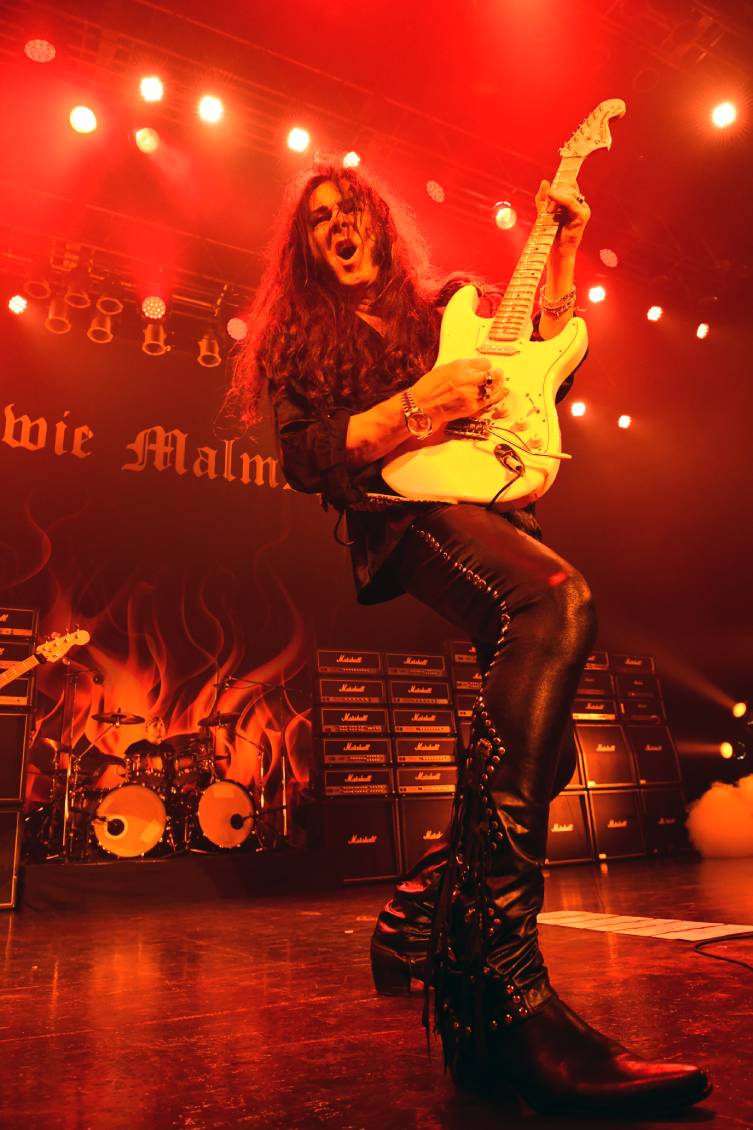
(Photo: Hikari Yuba)
No Sweep-picking, and Playing Tips from Yngwie
GG: Haha, I agree! Part of the reason you’re such an exciting player is because of the risk-taking. Now, here’s one for you Yngwie. This is our first time speaking together, and I know you as being a phenomenal sweep-picker, and that’s a weakness of mine as a guitarist. I’m not so good at it. So, I thought: if I’m going to be talking to Yngwie Malmsteen, I really should ask him if he’s got any tips or advice to improve my sweep-picking. Could you do that for me?
YM: I can’t give exact advice, but the only thing I can tell you is that what I do - I can’t talk for anybody else - but what I do is not sweep-picking.
GG: Right.
YM: Sweep-picking would entail downstroke, downstroke, downstroke, upstroke, upstroke, upstroke. Down and up. I do not do that.
GG: So I’m thinking it's sweep-picking because of how it sounds, but it's something else.
YM: Yeah, it's alternate. It’s down, down, up, down, up, down, up. It is not down, down, down and so on because that is like striking a chord, whereas I look at arpeggios as exactly what ‘arpeggio’ means: broken chord. It’s not a chord with a root, third, fifth, octaves played together, they are played separately. In order for them to be played separately, they have to be singled out. This is actually the trickiest part.
"Basically, with distortion and Paganini's 5th Caprice, I took that and started climbing Mount Everest"
When I was about 12 or 13, I saw a solo violinist on TV playing something. I didn’t know what it was, but I found out later that it was Niccolo Paganini’s 24 Caprices. I literally fuckin’ freaked out! I said, I wanna try to get that on my guitar, which was like ‘Yeah, sure kid! Yeah! Good luck with that!’ (laughs) But I’m a very ambitious person, haha! So, I said fuck you, I’m gonna try! And I realised that when you did the standard guitar two string pull-off kinda thing, it’s nothing like that. No note repeats itself.
Basically, with distortion and wanting to play Paganini 16th - no, 5th - Caprice, it’s a fuckin’ knockout - I took that and started climbing Mount Everest. From the very fucking bottom. Because I’d never heard anybody play like that on the guitar. I wanted to do that on the guitar, but the right way: completely separate notes. And it took me a long-ass time! I didn’t really start figuring it out as much as I was just listening to it. This was in the 70s.
So 3 string arpeggios, 4, 5, 6 string arpeggios, they’ll take you some time. I don’t have a trick, I can’t tell you ‘do it like this’, it’s more like: ‘do it till it sounds right’! (laughs)
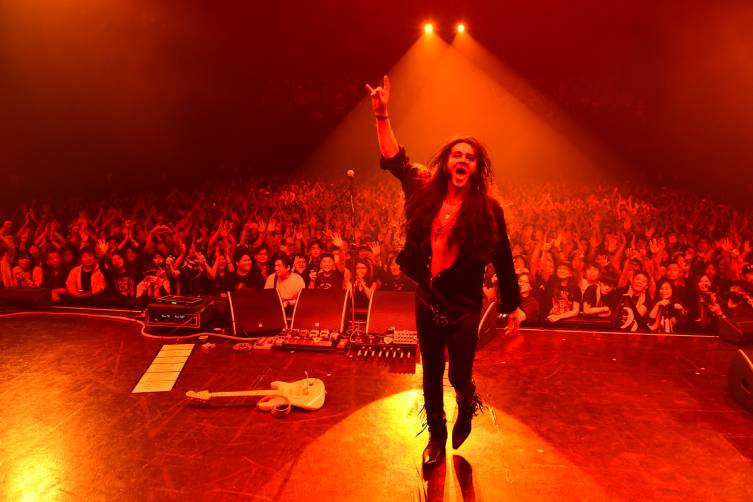
(Photo: Hikari Yuba)
Legacy: Changing the World
GG: Fair enough! So, you were saying that you wanted to take that Paganini sound and put it on the guitar. By doing so, and therefore creating that neoclassical style, you changed the world. After 40 years, do you ever stop and think about that legacy you’ve left as a musician?
YM: Well, I do when I’m getting reminded of it, you know? (laughs) The first thing I think is, shit, I’m really fucking old, haha! No, but seriously…you wanna hear something really crazy?
GG: Sure.
YM: You know the feeling I have when I speak to you or someone else who actually says these things? It’s gratitude. I’m very, very grateful that God allowed me to do this, and that people actually paid attention and were happy to hear it. Because I’m coming from the most obscure fucking background, I didn't have any open doors, so to speak. I had to break down every fucking door!
"I don't like to think too much about things, I like to just do them".
So yeah, I’m very grateful for it, but at the same time, I don’t like to rest on my laurels, either. It’s like ‘what else can I do with this?’, you know what I mean? It’s not like I’m gonna start playing jazz tomorrow or something like that! I’m firmly in this direction, this is what I like. The improvisation is what keeps it fresh and alive.
But I’ve always had a very clear vision of what I was looking for, and it was never a question about what it was. I guess being a stubborn old goat, you know, makes things happen, you know what I mean?
G: I do, I do! That’s a great answer. I was gonna ask you about the secret to longevity in the industry, but I think you kind of answered that, didn’t you?
YM: I think it is because I look at every day as a new day. I plugged in the Marshalls this morning and immediately I heard the growl and was like: aw man, this is exciting! After all these fuckin’ years!
GG: I love that! 37 years after being one of the first Fender artists to get a signature Strat, you’re still getting excited by switching on an amp. I love that! That’s what it’s all about.
Yngwie’s Signature Fender Strat: The Story
YM: Yeah. You wanna hear a little secret?
GG: Sure.
YM: I was THE first one. You know when they started my signature model?
GG: I thought it was 1988?
YM: 1986.
GG: No waaay!
YM: Oh yes.
GG: I’m sorry Yngwie, I got my information wrong there.
YM: Yes! In 1986, I was playing in Long Beach Arena, California, and Dan Smith and his whole team came backstage before the show. At the time, I was playing a 1956 Strat and a 1961 Strat, those were my main guitars. In fact, I gotta tell you a funny story. When I first came on the scene, Fender Strats were very, very unfashionable. Nobody wanted to fuckin’ play them: everybody wanted a humbucker in the Strat and the Floyd Rose and the striped guitar, pointy horns, all this shit.
So when I came on the scene in 1982-83, I had literally every guitar company in the world coming up, saying ‘we’ll make you whatever you want’. Except Fender! Fender didn’t do signature models. So Ibanez, Gibson, every guitar company, ‘We’ll make you whatever you want!’ Schecter, I can’t remember them all. And I said, ‘thanks, it’s okay. I bought my Strat, I’ll just use them.
Dan Smith told me that when my first solo album came out (Rising Force), with the Fender Strat coming out of the fire, they couldn’t fuckin’ sell those things fast enough! Before that, they were just laying around! So he came up to me and said, ‘I want to have an Yngwie Malmsteen signature guitar’. I thought he was joking, you know? I was 22 years old. I didn’t know him that well - we became very good friends after a while - anyway, they came in and measured the necks, measured everything. Then he said, ‘well, I don’t think we can do it scalloped, I don’t think it’ll sell’. ‘Well, I don’t want it then’. Haha! So they made it scalloped! ‘Should we make it 22 frets?’ No. ‘Should we do a locking…’ No.
But I’m not used to Fender pickups, they suck. I said, if you wanna do this, you gotta do this right. And they did whatever I wanted, in March or April of 1987. I was in Texas in a recording studio and Dan Smith flew into the studio and gave me the first Yngwie Malmsteen Stratocaster. Okay? I told my tech to just tune it up - don’t even change the strings - tune it up and give it to me. I was recording a solo on a song called Heaven Tonight. That solo is recorded on that guitar, the first guitar they ever built me.
GG: Oh wow.
YM: Yep, and it’s 1987.
GG: So you beat Clapton by a year.
YM: Yes. So I’m extremely honoured about this, obviously. But that just shows that when you are true to yourself and true to what you do… I could've easily said they gotta pay me money and you gotta build this guitar and everything, but I said no. I don’t want it. Same thing with amps, by the way. I was offered every amp company in the world too, still am. I’m a Marshall guy.
GG: It’s a classic combination for you, isn’t it?
YM: (laughs) Yeah!
And like a speeding Ferrari, he was off, onto the next thing at breakneck speed. I felt that we’d managed to cover some good ground (maybe because one of us was in a Ferrari) in our conversation, and that Yngwie had really given up some good stories, tips and insights. It was a fun conversation for sure, and hopefully we’ll get to enjoy another in the future.
In the meantime, you can go and listen to Tokyo Live wherever you get your music, and with any luck, Yngwie will be on tour again soon.
For all things Yngwie, head to the official Yngwie Malmsteen website. I should point out that we also carry his Fender guitars, Seymour Duncan pickups and MXR Overdrive, so click the button below for all of our Malmsteen-related gear! Cheers for reading and I’ll see you next time!



